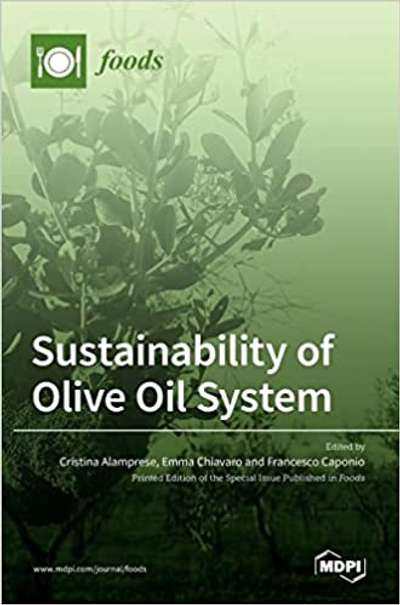Sustainability of Olive Oil System
Cristina Alamprese, et al

Sustainability, defined as 'meeting current needs without compromising the future', is a widely accepted goal across many sectors of society. Sustainability's criteria and indicators often only regard sustaining present conditions through increased resilience, intended as a system's capacity to experience shocks while retaining essentially the same functions and structures. However, new sustainability concepts, sometimes referred to as "sustainagility", also consider the properties and assets of a system that sustains the ability (agility) of agents to adapt and meet their needs in new ways, preparing for future unpredictability and unforeseen changes. Therefore, resilience must coexist with adaptive capacity for real, long-term sustainability.
Consumers are paying increasing attention to the sustainability of the food supply chain; thus, sustainable development is necessary for all food processes. Since the olive oil sector has a well-established historical tradition, any change and innovation that aims to obtain a sustainable development not only needs to be analyzed in terms of environmental, economic, and social aspects, it should also be significantly improved and closely monitored. Thus, this Special Issue is a collection of papers that can increase sustainability knowledge in the olive-oil-processing chain, to take a significant step forward in future developments.
*Available for Download Only
MDPI Book Link (available for purchase)
Detail Penerbitan
- Terbit: 2022
- Penerbit: Mdpi AG
- ISBN-10: 3036533699
- ISBN-13: 978-3036533698